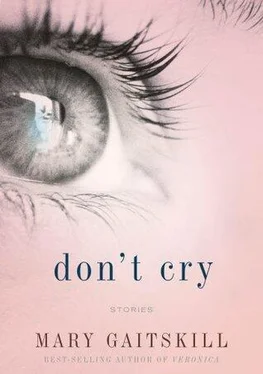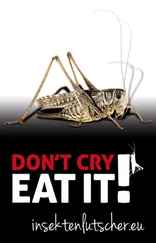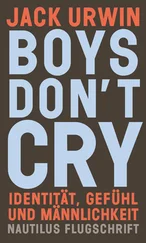Katya said, “Being here is like being in biblical times and modern times at the same time. Like all times are happening at once, and people are just walking back and forth between them.”
Not walking, I thought, falling.
I said, “Did I ever tell you that Thomas was the first man I came with?”
“No,” said Katya. “I didn't know that.”
“It's true. Not immediately, but yeah. First time for me.”
“The first time I came — I mean with a person, not myself — it was with a stranger,” said Katya.
“A total stranger?”
“Almost — I'd known him a day and a half. It was when I was sixteen. He was, like, twenty-five. He was probably more skilled than I was used to, or maybe he wasn't. I've no idea why it happened. We were doing it and — this huge feeling came and grabbed me up. Like a wave picked me up and put me on top of a building, and before I had a chance to look and see where I was, it took me back down. He was looking at me and smiling, because I'm sure my face was saying, What did you just do? And then the next day, he was gone. If that had happened with somebody I loved, I would've thought I came because I was in love. Sex would've been all about love in my mind. But as it was, it was impossible to make that mistake. I fell in love after that, and I came with people I loved. But I didn't think I was coming because of love.”
“It wasn't always about love with Thomas,” I said.
She started to respond, but her cell phone rang in her lap. Irritated, she picked it up. She listened; her attention went taut like a bow. She dropped the phone and shouted, “The mother brought the baby back!” and she grabbed the phone up again. It was Kebede. The mother had slept outside the hospital all night with the baby. She wanted to put him up for adoption, and she wanted Katya to have him.
It took a few days for the mother to do the paperwork, but we got Sonny right away. We went back to the store of ugly clothes and bought a little suitcaseful. We bathed Sonny and dressed him. But he would not stop screaming. It seemed to Katya that the baby screamed most when she tried to hold him. Sofia came to help us. She brought more of the spicy pasta dish that Sonny had devoured on the day we had met him, but the baby refused it with a frown that was deep and imperial. He refused to eat at all. “Maybe he wants to go back to his mother,” Katya said. “Do you think that's what he's saying?” “Nonsense,” said Sofia. “Don't even think it. They were sleeping outside during malaria season. Do you know what that means? The baby is already weak; if he stayed with that woman, he would die.”
“And besides, he's bossy like you,” I said. “Did you see the frown on him?”
And so we came before the judge. We took Sonny back to Addis Ababa. He screamed the whole flight. But Katya was unfazed; the strength of her doubt was now transformed and feeding her determination. We had fully entered our endeavor, and now, exhausted but almost mechanically activated, we were carried forward on a current of will that we had initiated, but which had become a force of its own.
We met Yonas at the airport and he took us to a bed-and-breakfast exclusively for people who were in Addis to adopt. The place was a compound with barbed wire and shards of glass atop its high walls. The massive gate was opened by a wizened man with clawlike hands and eyes like clouded marbles, a single twist of opaque expression coloring their center. The house was a weird combination of sparse and luxurious; it resembled a brick two-story you might find in Queens, but the oversized door was polished mahogany and, inside, the floors were made of large marble tiles. The owners were a haughty upper-class Ethiopian woman and a neurasthenic Italian man who had written several unpublished children's books; his mother, an opinionated lady with a pug dog, was also there, visiting from Rome.
Because Sonny tended to get carsick, I stayed at the B and B with him while Yonas drove Katya around the city to get letters proving who she was and who Sonny was, translations of these letters into English and/or Amharic, a birth certificate, a passport, and a visa for Sonny. Katya mounted a daily assault on the Head, from whom she needed to get a letter of approval for an orphanage to sponsor the adoption. Each of these tasks was, of course, impossible. When I tell the story to people, I make it sound as if Katya flowed through the city coursing around the obstacles in her path with the smooth determination of water. But she was not water and she came home bruised and furious from bumping her head against every damn thing. She paced around, telling great tales of wild, shape-shifting bureaucracy, of crawling through its narrow mazes, up endless stairs and down fun-house chutes, confronting at every turn hydras made of obdurate, obfuscating, lecturing, lying, malicious, misshapen Ethiopian heads, plus some idiotic American heads thrown in. The Head was a pig and a bitch, and sometimes, so was I. When Katya came home tired out, still too sick to have an appetite, I would be desperate to leave the compound for something to eat, and she would not want to go. We quarreled about it until we were exhausted, breaking to feed, change, or walk the child, who, when he didn't sleep through it, watched the drama with interest. Then Katya would get up the next day and leave the house to do it all again.
My time alone was a different sort of maze: dreamlike and lullingly dull, the surreal darkness of grief blended with the bright reality of caring for a frail child. Sonny was not only frail; he was underdeveloped from his early life of illness and malnourishment. We had not seen the extent to which this was true, possibly because his spirit had stood out to us with such force. But our first day at the B and B we saw him with another child close in age, and, in comparison, his movements were weak, uncoordinated, somehow partial. He couldn't walk more than a few steps and his gaze was intense but not quite focused, as if he was suffering from a mild psychic fever. He didn't walk well, and at first he didn't want to walk at all. He just wanted to be carried around the house, out into the yard and back, again and again.
The first day, I carried him until I couldn't take any more; then I lay on the floor and rolled back and forth with him as he clung to me weakly, but with a hint of triumph in his raised head. I rocked him and crooned to him and dreamed of Thomas: of rocking him and crooning, of being rocked by him. Of straddling my husband and kissing him, bending to touch my breasts against him; of straddling him and struggling to reposition him on the bed, Thomas cursing me with strange half words because he could no longer position himself.
Sonny put his hand on my face and it came away wet. I kissed his tiny palm and held it. Thomas had lost motor control and could only get into bed by taking a sitting position over it and then letting himself flop backward. I had to let him do it that way — it was important for him to do what he could. But I had to reposition him, because if I left him as he fell, he woke in pain. It made Thomas furious to be straddled and positioned, and it hurt me to feel that. Yet I treasured it; I treasured his anger as a vestige of his pride, treasured that it could still make me angry, make me feel once more like a normal wife with a strong husband to quarrel with. I gave Sonny my finger; he squeezed it and I rolled into a seated position, cradling him.
I wondered if the baby wanted so much to be carried because his mother, a day laborer, had carried him strapped to her body. Or if it was something even more basic — that he was like a plant and I a random patch of earth from which he wanted to draw all the nurture he could get lest he be uprooted again. I looked into his eyes and remembered Thomas's eyes: restless, strangely shapeless. At the end, he still had the childish pleasure of sweet tastes, of touching the soft fur of Zuni, the cat; to see that pleasure was a kind of sadness I had never felt before. Sonny fluttered his lids, then half-opened them — checking one more time — then slept, his dear soft fist against my chest.
Читать дальше












